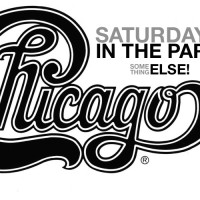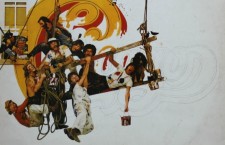Before his poetry at the plate and slugging prowess was discovered, Babe Ruth was an exceptional pitcher and likely could have been inducted into the Baseball Hall of Fame at that position without ever swinging a bat.
On a similar note, Peter Cetera’s vocal abilities are undeniable. Even those who aren’t necessarily fans of his singing acknowledge that he has some monster chops. Cetera possesses one of the most distinct voices in rock.
What often gets unnoticed, however, is Cetera’s prowess on the electric bass. Part of this is due to the fact that Chicago was known for the horns first, and their extremely tight rhythm section often got overlooked by all but the more ardent fans. And part of that may have been by Cetera’s own design: Upon David Foster’s arrival, he announced he wanted to give up the bass and focus solely on vocals.
As such, 1980’s Chicago XIV was one of the final albums where Cetera’s bass chops really stood out. On “Overnight Café,” his vocals arguably took a backseat to his instrument. That’s not a knock on his vocals, which were exceptional as usual — but more a reflection of how tight his bass playing was. Chris Pinnick augments the rhythm section with some fiery guitar work that complements rather than overpowers Cetera’s bass and vocals.
I’ve long argued that the best showcase of those bass chops was 1972’s Chicago V. From “State of the Union” and “Dialogue” to “Now That You’ve Gone” and “Goodbye,” Peter Cetera’s bass playing is both melodically subtle and at times very much “in your face” – thanks largely to how it was mixed.
Tom Dowd apparently took notice of that and opted to have “Overnight Café” mixed in a way that would, once again, push Cetera’s bass playing to the forefront.
“Overnight Café” also shows a tightness in the rhythm section that hadn’t really been present on the two albums with Donnie Dacus. Donnie, while an exceptional guitarist in his own right (as evidenced not only with his work with Chicago but also his work with Stephen Stills prior to that), stylistically just wasn’t the right fit for Chicago. Chris Pinnick, on the other hand, had a fire and intensity reminiscent of the late Terry Kath. No one will ever replace Kath, of course, but it’s been argued by many fans that Pinnick came the closest to doing so.
Being the second track on what was Side 2 of the LP and cassette version of Chicago XIV, “Overnight Café” built on the strong start established on “Hold On” – and built on the promise that Side 2 would be much stronger than Side 1 had been.
Given the musical climate of the early ’80s, it could be argued that “Overnight Café” would’ve been a stronger single than “Thunder and Lightning,” but the general lack of horns perhaps prevented the song from being released. Much like “Hold On,” “Overnight Café” would probably have been a stronger fit on Peter Cetera’s looming solo debut.
- The Most Surprising Moment on Alan Parsons Project’s ‘Eve’ - August 27, 2024
- Why the Audiobook Versions of Jimmy Barnes’ Autobiographies Are Definitive - June 24, 2024
- Kahvas Jute – ‘Wide Open’ (1970): Antipodean April - April 28, 2024



